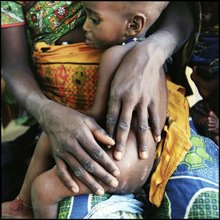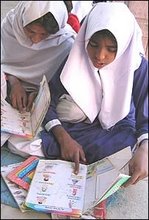PREAMBLE: Florida: July 13, 2013:
Neighborhood-watch captain George Zimmerman was acquitted of all
charges in the shooting of Trayvon Martin, the unarmed black teenager
whose killing unleashed furious debate across the U.S. (and around the world).
This debate concerns the practice of racial profiling (which was clearly
evident throughout this case, even though denied by officials of the justice
system), the (mutual) right of self-defence, equal justice, and (must we say it
again?) capricious gun violence.
We
will not debate the pros and cons of this court outcome, which seems to be an
example of extreme injustice even as it is deemed to be legally correct under
Florida state law.
However,
in this month’s blog, we wish to bring the attention of readers to a
consistent international finding that the US Justice System is performing
poorly with regard to equal protection before the law, especially for racial
minorities and the poor.
THE US LEGAL SYSTEM RANKS POORLY COMPARED
WITH OTHER WEALTHY NATIONS.
The
following material is extracted and paraphrased from two sources: a piece by
Dan Froomkin. Huffington Post 11/12/2012, and the website of the European
Commission: Joint Research Centre. Complete citations are
given below.
Access to justice is said to be a core American
value. And even the lead prosecutor for the state of Florida stated following
the verdict, stated that theirs was “the best justice system in the world.”
But a 2012 world survey of the rule of law (third
in a series which began in 2010, following the formation of the World Justice
Project which was initiated with the active support of the American Bar
Association), continues to find that the U.S. ranks surprisingly low relative to
its peers (other wealthy industrialized countries) in terms of equal protection
under criminal law.
The "Rule of Law Index," released by the
independent World Justice Project, found that in some
categories the U.S. even ranks below some developing nations, such as Botswana
and Georgia.
In an interview with The Huffington Post, the
survey's authors said the problems in the U.S. are primarily due to unequal
access to justice based on race and class. "In the U.S.,
socioeconomic level matters," said Alejandro Ponce, chief research officer
for the World Justice Project. "Poor people are at a disadvantage in all
these situations, as are ethnic minorities."
In the category of criminal justice, the U.S. ranked 26th among 97 countries, and in the bottom 20% of wealthy nations - dragged down by low scores in the subcategory of equal protection.
In the civil justice category, the U.S. lags behind in providing access to disadvantaged groups, the survey
found. "Legal assistance is frequently expensive or unavailable, and the
gap between rich and poor individuals in terms of both actual use of and
satisfaction with the civil court system is significant. In addition, there is
a perception that ethnic minorities and foreigners receive unequal
treatment."
The U.S.'s highest ranking, in the category of open
government, still placed it only 13th out of 97 countries worldwide. "The
U.S. lags behind most of the Western European countries in all
dimensions," Ponce said.
This is the third annual index by the World Justice
Project, and since the first survey in 2010, the U.S. rankings
have remained weak.
"It remains very significant and the problem
is that we do not see that government efforts or private efforts are making any
dent in the problem," said Juan Botero, the project's executive director.
"We were very hopeful when the Obama administration launched the Access to Justice Initiative - but we do not see any improvement yet," he
said.
Source: Adapted from: Rule of Law index:
U.S. Ranks Low In Access To Justice Compared To Other Wealthy
Nations. Dan
Froomkin. Huffington Post 11/12/2012 http://www.huffingtonpost.com/2012/11/28/rule-of-law-index-2012_n_2200765.html
Some Aspects of Methodology
We at PacificSci tried
to access the World Justice Project site today to learn more about the
methodology, but it appeared to be blocked, or at least inaccessible perhaps due to heavy
traffic on the heels of the Zimmerman acquittal.
However, relevant
information on methods for the previous year's survey was accessible through
the European Commission Joint Research Centre site The approach documented
there is likely to be germane to the most recent survey, in that it states that
the earlier survey was “audited by the JRC's Institute for the Protection and the Security of the Citizen (IPSC).
JRC researchers also acted as academic advisers to the report.
To make a comprehensive evaluation of each country,
the authors of the (2011) report looked not only at the written laws, but also
at how they are implemented in practice and how they are perceived and
experienced by the citizens. The WJP Rule of Law Index™ examines four hundred
variables arranged in nine factors and 52 sub-factors corresponding to goals
that societies seek to achieve.
The outcome elaborates the input of 2,000 academics
and practitioners along with an opinion pool that involved 66,000 individuals.
JRC carried out a sensitivity analysis of the data sets produced and confirmed
the statistical reliability of the results.
Readers may wish to verify these and other aspects of methodology independently.
Source: European
Commission: Joint Research Centre. The World Justice
Project. 28/06/11 http://ec.europa.eu/dgs/jrc/index.cfm?id=1410&obj_id=13600&dt_code=NWS&lang=en
Our Conclusion
Leaders of the U.S. Legal System should curtail their tedious habit of proclaiming their system to be “the best in the world”. Clearly to make such a claim in the face of global evidence to the contrary is merely political propaganda. To get your house in order requires a higher level of moral courage than has been demonstrated lately by the US Congress, and equally so in relevant state legislatures (especially those which are Republican controlled, such as Florida), which are evidently hostage to the gun lobby in proclaiming such archaic legislation such as "stand your ground”, while tacitly maintaining, if not actively promoting, a racial divide on equal protection before the law.
Leaders of the U.S. Legal System should curtail their tedious habit of proclaiming their system to be “the best in the world”. Clearly to make such a claim in the face of global evidence to the contrary is merely political propaganda. To get your house in order requires a higher level of moral courage than has been demonstrated lately by the US Congress, and equally so in relevant state legislatures (especially those which are Republican controlled, such as Florida), which are evidently hostage to the gun lobby in proclaiming such archaic legislation such as "stand your ground”, while tacitly maintaining, if not actively promoting, a racial divide on equal protection before the law.
It seems the U.S. justice system could learn a lot by studying the experience of
other developed countries, many of which may in practice be more reasonable and just societies than the U.S.. While we live in hope that Americans
will eventually pull themselves out of this self-destructive morass of gun
violence, racially motivated or otherwise, in the meantime - a warning to
visitors to the U.S.: this is a
dangerous place where self-appointed vigilantes carry concealed weapons and may
take the law into their own hands, even if your only misstep is to fit a
preconceived stereotype (in their preconditioned brains, over which you have no
control). This vigilante "right" is protected under legislation: do take care!


























